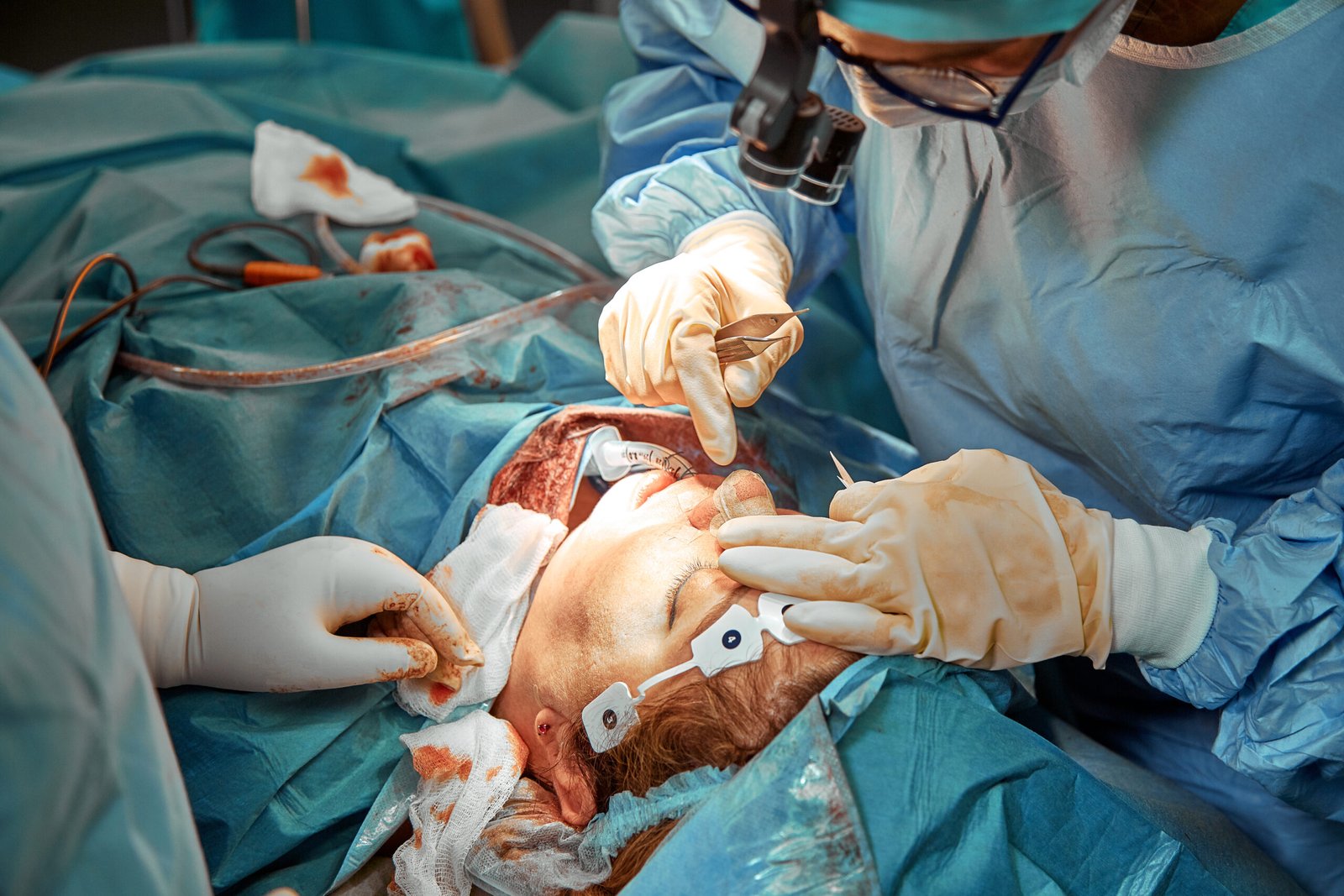
Cosmetic surgery is a deeply personal journey that blends artistic vision with medical precision. While most patients achieve their desired enhancements with an initial procedure, some find that their results do not align with their expectations due to complications, evolving aesthetic goals, or miscommunication. In such cases, revision surgery offers an opportunity to refine or correct previous outcomes.
Unlike primary cosmetic procedures, revision surgery comes with additional complexities. Scar tissue, altered anatomy, and heightened emotional expectations make these surgeries particularly challenging. Performing a revision procedure requires not only technical expertise but also a deep understanding of patient psychology, emotional resilience, and a commitment to delivering realistic yet transformative results.
This article explores why revision surgery is more demanding than primary procedures, the specialised skills it requires, and how patients can confidently navigate the process to achieve their aesthetic goals.
What is Revision Surgery?
Revision surgery refers to a corrective or enhancement procedure performed after a previous cosmetic surgery. Patients may seek revision surgery for aesthetic improvements, functional corrections, or both.
Common Reasons for Revision Surgery
Aesthetic Concerns
Some patients are dissatisfied with the appearance of their results, often due to asymmetry, lack of definition, or unnatural contours. For instance, an uneven rhinoplasty outcome or excessive removal of cartilage may require revision.Healing Complications
Even when performed with precision, cosmetic surgeries may not always heal as expected. Scar tissue formation, implant shifting, or asymmetry during healing may necessitate a corrective procedure.Evolving Preferences
Over time, a patient’s aesthetic ideals may shift. Someone who initially desired dramatic volume in their lips or breasts may later prefer a more subtle, natural look.Surgical Errors
In rare cases, a poorly performed procedure—often by an underqualified surgeon—may result in undesirable outcomes. Common issues include misplaced implants, imbalanced facial features, or unnatural-looking contours.Functional Issues
Revision surgery is sometimes necessary to correct functional impairments. For example, a patient experiencing breathing difficulties after a rhinoplasty may require nasal reconstruction to restore proper function.
The Unique Challenges of Revision Surgery
Revision surgery is inherently more complex than primary procedures due to the following factors:
1. Altered Anatomy and Scar Tissue
Previous surgeries change the body’s natural structure. Scar tissue can reduce skin elasticity, making revisions less predictable. For example:
Rhinoplasty revisions may require rebuilding nasal cartilage that was removed in the initial procedure.
Breast implant corrections may involve addressing hardened scar tissue (capsular contracture) that affects the shape and feel of the breast.
2. Managing Emotional Expectations
Patients seeking revision surgery often feel disappointment or frustration with their previous experience. As a result, their expectations may be heightened. A skilled revision surgeon must balance patient desires with realistic surgical outcomes.
3. Increased Risk of Complications
Revision procedures carry higher risks due to:
Increased scar tissue and reduced skin flexibility.
Changes in blood supply to the area.
Longer recovery times and higher chances of complications such as infection or prolonged swelling.
4. Advanced Surgical Techniques Required
Revision surgery often involves more intricate and innovative techniques than primary procedures. For instance:
Facelift revisions must work with previously stretched skin, requiring careful repositioning to avoid an unnatural look.
Liposuction corrections involve smoothing out irregular fat distribution from an initial procedure while avoiding excessive trauma to the tissue.
Why Revision Surgery Requires Special Expertise
Not all surgeons have the experience or skill to perform successful revision surgeries. These procedures demand advanced knowledge, exceptional precision, and a personalised approach.
1. Expertise in Complex Cases
A revision specialist has the expertise to handle altered anatomy and work around scar tissue while delivering natural results.
2. Precision and Attention to Detail
Small adjustments in revision surgery can significantly impact the final result. The ability to work meticulously ensures harmony and symmetry in the final outcome.
3. Customised Surgical Planning
Each revision procedure must be tailored to the individual patient’s concerns. A skilled revision surgeon will develop a unique approach based on the patient’s history, current anatomy, and desired results.
4. Emotional Support and Clear Communication
Patients undergoing revision surgery need reassurance and realistic expectations. A qualified revision surgeon builds trust by offering transparent communication about potential outcomes and limitations.
How to Choose the Right Surgeon for Revision Surgery
1. Research Qualifications
Look for a board-certified surgeon with a proven track record in revision procedures. Membership in reputable organisations such as BAAPS (British Association of Aesthetic Plastic Surgeons) or BAPRAS (British Association of Plastic Reconstructive and Aesthetic Surgeons) is an added assurance.
2. Review Before-and-After Photos
Examining a surgeon’s past revision cases can provide insight into their ability to correct complex concerns and produce natural-looking outcomes.
3. Schedule In-Depth Consultations
A thorough consultation allows the surgeon to assess concerns and develop a tailored plan. Patients should use this time to ask questions about surgical techniques, risks, and expected recovery.
4. Seek Patient Testimonials
Reviews from past patients can offer valuable insights into a surgeon’s professionalism, skill, and ability to deliver satisfactory results.
Preparing for Revision Surgery
To ensure the best results, patients should:
Set Realistic Expectations: Understand that revisions can improve results but may not achieve absolute perfection.
Follow Pre-Operative Guidelines: A healthy lifestyle, quitting smoking, and proper nutrition can enhance healing.
Plan for Recovery: Revision surgeries often require a longer recovery period, so patients should make arrangements accordingly.
The Benefits of Revision Surgery
When performed by an experienced surgeon, revision surgery can provide:
Enhanced Confidence: Patients feel reassured and satisfied when their concerns are successfully addressed.
Improved Functionality: In cases like rhinoplasty revisions, restoring function can significantly enhance quality of life.
A Fresh Start: A successful revision allows patients to move past previous dissatisfaction and embrace their enhanced appearance.
Conclusion
Revision surgery is a highly specialised field requiring technical skill, artistic judgement, and a compassionate approach to patient care. Due to its complexity, it is essential for patients to choose a qualified, experienced surgeon to ensure optimal results.
By understanding the intricacies of revision surgery and working with a trusted specialist, patients can achieve natural, refined outcomes that enhance both their appearance and confidence. Revision surgery is not just about correcting past procedures—it’s about providing patients with renewed satisfaction and self-assurance in their aesthetic journey.






